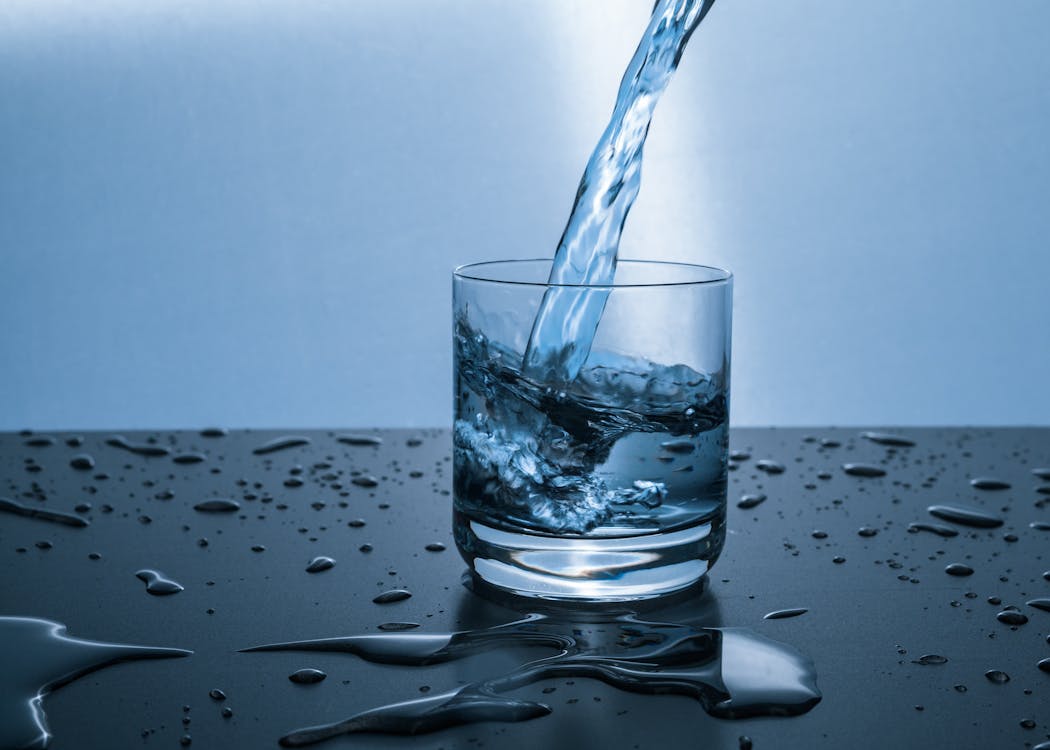Watery Semen: Causes, Fertility Concerns, and How to Improve Quality

Key points
- Volume: Typically 1.5 to 5 milliliters per ejaculation.
- Color: Whitish-gray and opalescent.
- Consistency: It's initially thick and gel-like, liquefying within about 20-30 minutes after ejaculation to allow sperm to swim freely.
- Smell: A faint, bleach-like smell due to its alkaline pH.
It's common to notice variations in your body, and changes in the consistency of semen can be a source of concern for many. If you've ever wondered why your semen appears thin, clear, or watery, you're not alone. While normal semen is typically a thick, whitish-gray fluid, a more watery consistency can occur for several reasons.
Often, this is a temporary and harmless variation caused by lifestyle factors. However, persistent watery semen can sometimes signal an underlying health condition that may affect fertility. This comprehensive guide will explore the causes of watery semen, its potential impact on fertility, and actionable steps you can take to improve your reproductive health.
Understanding Semen Consistency: What's Normal?
Semen, or seminal fluid, is a complex mixture of sperm from the testicles and fluids from the prostate gland and other reproductive organs. According to the World Health Organization (WHO), normal semen has several key characteristics:
- Volume: Typically 1.5 to 5 milliliters per ejaculation.
- Color: Whitish-gray and opalescent.
- Consistency: It's initially thick and gel-like, liquefying within about 20-30 minutes after ejaculation to allow sperm to swim freely.
- Smell: A faint, bleach-like smell due to its alkaline pH.
Watery semen is characterized by a thinner, less viscous, and sometimes clearer appearance than is typical. While this can be alarming, it's important to understand the potential causes before drawing conclusions about your health.
Staying hydrated is a simple but crucial step for maintaining healthy seminal fluid volume and consistency.
Common Causes of Watery Semen
Several factors, ranging from temporary habits to underlying medical conditions, can lead to watery semen.
Low Sperm Count (Oligospermia)
The most common medical reason for persistently thin and watery semen is a low sperm count, also known as oligospermia. The WHO defines a low sperm count as having fewer than 15 million sperm per milliliter of semen. Sperm contribute to the thickness and cloudy appearance of ejaculate, so fewer sperm can result in a more translucent, watery fluid.
Potential causes of low sperm count include:
- Varicocele: A swelling of the veins in the scrotum, which is a major, but treatable, cause of male infertility.
- Infections: STIs like gonorrhea or other infections such as prostatitis (prostate inflammation) can interfere with sperm production.
- Hormonal Imbalances: Hormones from the pituitary gland, hypothalamus, and testicles are essential for healthy sperm production. Imbalances can disrupt this process.
- Genetic Conditions: Conditions like Klinefelter syndrome can affect sperm count.
- Tumors: Both benign and malignant tumors in the testicles can impact sperm production.
Frequent Ejaculation
This is a very common and temporary cause. If you ejaculate multiple times in a short period, your body may not have enough time to produce a full volume of thick, sperm-rich semen. As noted by Healthline, the first ejaculation of the day is typically the thickest, with subsequent ejaculations becoming progressively thinner and clearer. Your body generally needs at least several hours to a full day to replenish its sperm supply.
Nutritional Deficiencies
Your diet plays a crucial role in reproductive health. A deficiency in certain nutrients, particularly zinc, is a known cause of poor semen quality. Studies show that zinc is essential for sperm production and that low zinc levels can be associated with low sperm count, potentially leading to a watery consistency.
Other Medical Conditions
- Retrograde Ejaculation: In this condition, semen travels backward into the bladder during orgasm instead of exiting through the penis. This can result in a much smaller volume of ejaculate, which may appear thin.
- Dehydration: Seminal fluid is primarily water. As highlighted in a CNN health report, chronic dehydration can reduce the overall fluid volume in your body, leading to thicker, more concentrated semen or, in some cases, affecting seminal fluid production.
Does Watery Semen Affect Fertility?
The connection between watery semen and fertility is primarily linked to sperm count. While the visual appearance of your semen is not a definitive diagnostic tool, it can be a clue.
- Subjective vs. Objective Measures: Observing watery semen is a subjective perception. The only way to truly assess your fertility is through a clinical semen analysis. This objective test measures critical factors like sperm count, motility (movement), and morphology (shape).
- The Correlation: Persistently watery semen often correlates with low sperm concentration. Since having a sufficient number of healthy, mobile sperm is necessary for fertilization, a low count can make conception more difficult.
- Not an Automatic Diagnosis: It's crucial to remember that having a low sperm count does not automatically mean you are infertile, nor does watery semen. It simply may reduce the probability of conception and might mean it takes longer to achieve a pregnancy.
Beyond Consistency: What Semen Color Can Tell You
The color of your semen can also provide important health clues. Any persistent discoloration warrants a conversation with a healthcare provider.
| Color | Potential Meaning |
|---|---|
| Clear | Can be pre-ejaculatory fluid or indicate a very low sperm count. |
| Yellow or Green | May suggest the presence of urine, jaundice, or an infection (like prostatitis or an STI). |
| Red, Pink, or Brown | Indicates the presence of blood, known as hematospermia. This is often caused by inflammation, infection, or a recent procedure like a prostate biopsy. While alarming, it's frequently benign. |
| Dark Brown or Black | Could be associated with older blood, but in rare cases, it can be linked to spinal cord injuries or heavy metal toxicity. |
Actionable Steps to Improve Semen Quality
The good news is that you can positively influence your semen quality through targeted lifestyle and dietary changes. Because it takes about three months for new sperm to fully develop, consistency is key.
A diet rich in omega-3s, zinc, and antioxidants can significantly boost semen quality and overall reproductive health.
Lifestyle Modifications
- Maintain a Healthy Weight: Obesity is linked to hormonal changes that can reduce fertility.
- Exercise Regularly: Moderate physical activity can boost antioxidant enzymes, which help protect sperm.
- Quit Smoking and Reduce Alcohol: Both tobacco and excessive alcohol consumption are known to decrease sperm count and motility.
- Manage Stress: Chronic stress can disrupt hormones needed for sperm production.
- Avoid Overheating: High temperatures can impair sperm production. Limit time in hot tubs and saunas, and avoid placing laptops directly on your lap for long periods.
Dietary Changes and Hydration
- Stay Hydrated: Drink plenty of water throughout the day to ensure adequate seminal fluid volume.
- Eat a Balanced Diet: Focus on a diet rich in fruits, vegetables, lean proteins, and whole grains.
- Boost Zinc Intake: Include zinc-rich foods like oysters, beef, poultry, beans, nuts, and seeds.
- Get Enough Omega-3s: Fatty fish like salmon, mackerel, and sardines are excellent sources of omega-3 fatty acids, which are linked to better sperm health.
- Consume Antioxidants: Foods high in antioxidants (like berries, leafy greens, and dark chocolate) help protect sperm from cellular damage.
When to See a Doctor
While occasional changes in semen consistency are usually not a cause for alarm, you should consult a doctor or urologist if you experience:
- Persistent Watery Semen: If the change lasts for several weeks and is a source of concern.
- Accompanying Symptoms: Seek medical attention if you also have pain during urination or ejaculation, fever, chills, lower back pain, or unusual discharge.
- Semen Discoloration: Any persistent red, brown, yellow, or green color in your ejaculate.
- Fertility Concerns: If you and your partner have been trying to conceive for over a year without success.
A healthcare provider can perform a physical exam and, if necessary, order a semen analysis to get a clear picture of your reproductive health. Based on the findings, they can recommend appropriate treatments, which might include antibiotics for an infection, hormone therapy, or surgical correction for a varicocele.

About the author
Carlos Ruiz, MD, FACS, is a board-certified urologist specializing in minimally invasive and robotic surgery for urologic cancers. He is a senior partner at a large urology group in Houston, Texas, and is involved in clinical trials for new prostate cancer treatments.